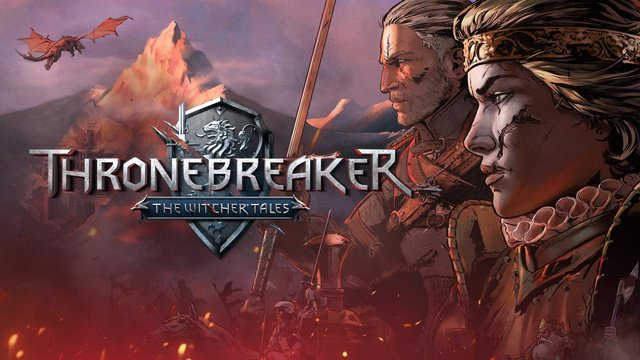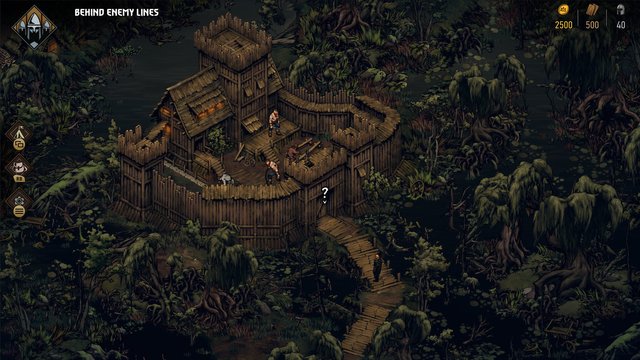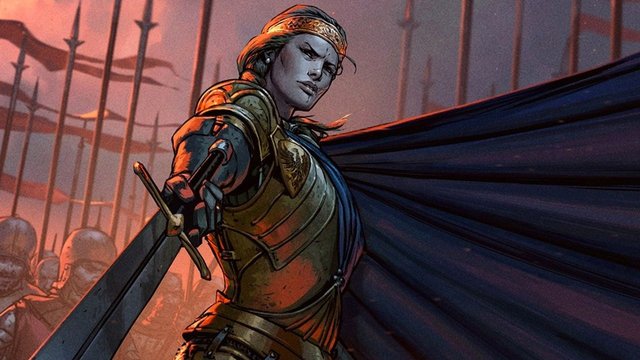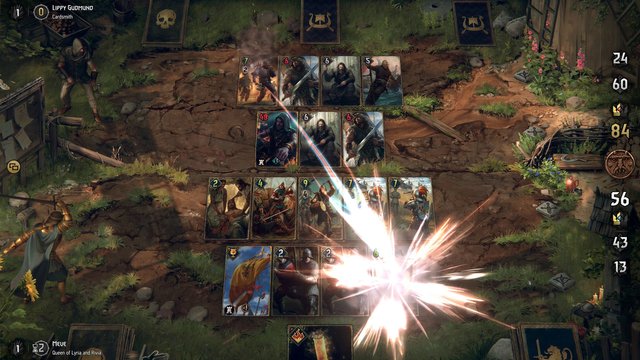Game Review: Thronebreaker: The Witcher Tales
When Witcher 3 came out a few years ago, one of the highlights was the card game Gwent.
Many RPG games have these mini games, usually useful for earning some cash for the main character, and usually fairly tedious. Gwent, however, was great. The game, reportedly developed in mere days and included almost as an afterthought, took up much of my Witcher 3 playing time. It became a more integrated part of the game in the two expansions, with additional cards and more quests.

Don't be fooled. Geralt is barely in the game. All images are promotional materials released by CD Projekt
Last year, a beta for a standalone Gwent game was released. It had a small single player element that was more of a tutorial, but was mostly multiplayer. I don't like multiplayer games. You can't pause them. When someone's at the door, you lose a match. And then there's waiting for the other player to make a move already. MOVE, dammit. Why aren't you moving? But I still played a TON of Gwent. I was never very good, but I was okay. Gwent is a deeply strategic game, and I just like to play with cards I like. It took me a while to really start getting strategic, building decks suitable for particular styles of play.
Last Tuesday, on the 23rd, Gwent came out of beta. With it came the long awaited single player campaign. Unlike multiplayer game, the single player campaign, Thronebreaker, isn't free. It's not quite priced like a AAA release, at $29,99, but it's more expensive than an indie game.
The Story
Thronebreaker is the story of Meve, queen of Rivia and Lyria. Coming home from a meeting of the Northern monarchs, she discovers than Nilfgaard - the massive empire of the south - has invaded the northern kingdoms. And then, well, things get worse.
To a large extent, the story is there to bring the player to various battles and encounters. Those are usually resolved in a game of Gwent that represents the battle. As Meve builds her army and meets potential companions, the player's deck becomes more powerful. Certain choices can also lead to losing cards. There are resources to be gathered, some just laying around and some following battles and puzzles.

As is usually the case with Witcher games, there are many moral choices to be made. Some have immediate repercussions, and some have an effect later on in the game. One immediate result of many choices is the army's morale. A happy army's units have a one point bonus each. An unhappy's units have one point reduced. Those points stack up during a battle. But after every regular battle, the army returns to a neutral state, so that's nice.

It's a solid story. Regardless of the decision you make, Meve is a compelling character. She can be a nice compelling character, of a fairly terrible one, but she's always interesting. The companions are less interesting, though a couple do come with interesting stories.
In my two runs of the game, I made some different decisions in some of the major story points. The main effect had to do with companions leaving or staying. Which is substantial, as their cards are the most powerful in the game.
The Gameplay
The game is played in a manner that is a cross between an Action-RPG and a card game. You walk your character - Meve, representing her army - and collect stuff and interact. And then there are the battles and puzzles, which are card games.
Different battles and puzzles have different rules, and may have different decks. Some puzzles are very hard. No battle is particularly hard, except the last big one, where there's really only one strategy that works. But once you figure that strategy out, it becomes pretty easy, even on the hardest of modes. The battles are fun, especially if you've got your strategy figured out and have kitted out the appropriate deck.

Many of the puzzles are also fun, though some can be frustrating. A couple took me a whole bunch of attempts. In the first couple of days, there were no videos out to help with those, so I had to figure it all out myself in the first of my two playthroughs. Now, if you're really stuck, you can go to youtube.
The Problem
There's one super annoying facet to this game. Gwent's release from beta brought forth entirely different attributes for the cards. Very, very few retained their attributes from the previous version, with seemingly switched out randomly. This is frustrating, though understandable. The beta saw some similar changes through the year plus it was ongoing. What makes it much more frustrating is that the cards in Thronebreaker have, once again, entirely different attributes. Not just lesser versions, mind. In some cases, they are just completely different. When I unlock a multiplayer character through my single player game, I expect it to have at least some connection to the multiplayer character besides having the same name and art.
Conclusion
Thronebreaker: The Witcher Tales is a fun game, overall. I binge-played it twice in less than a week. And I never had to wait too long for my opponent to make a move. I like that. I recommend it to fans of the Witcher games and the world of the series, and particularly those who enjoyed Gwent as much as I did.
Your post was upvoted by the @archdruid gaming curation team in partnership with @curie to support spreading the rewards to great content. Join the Archdruid Gaming Community at https://discord.gg/nAUkxws. Good Game, Well Played!